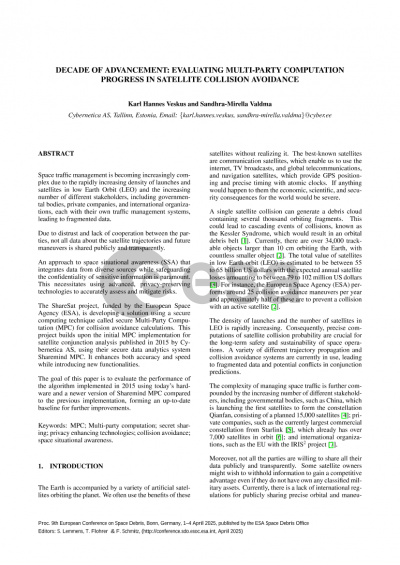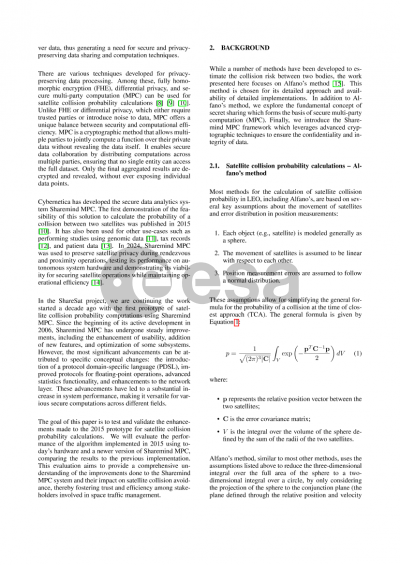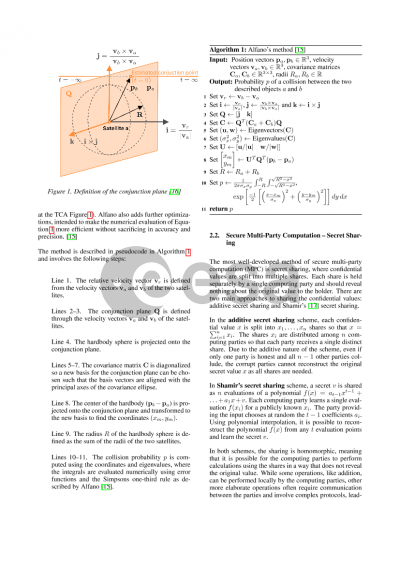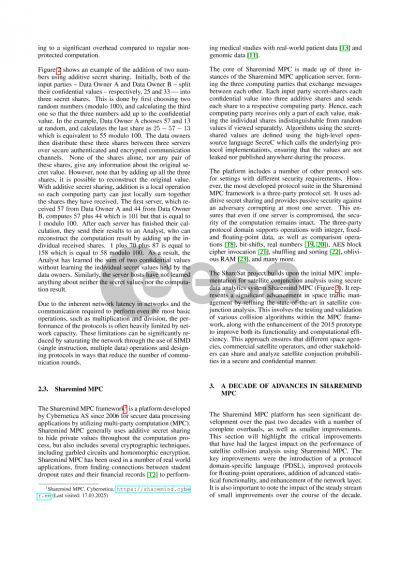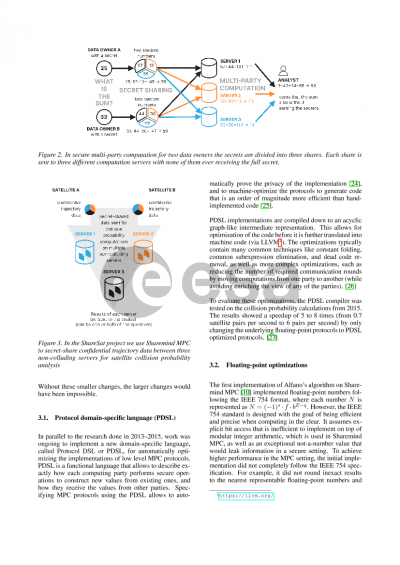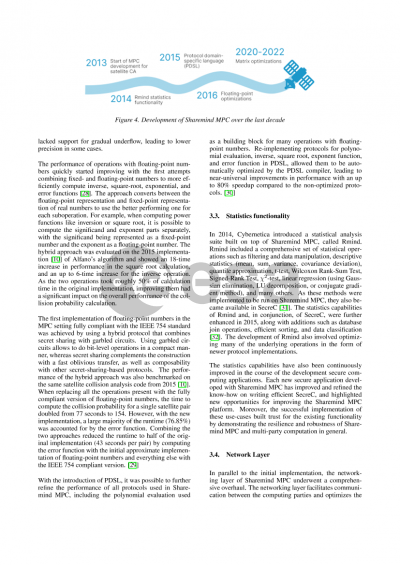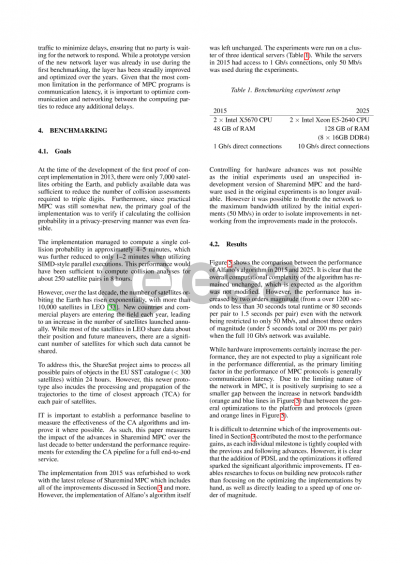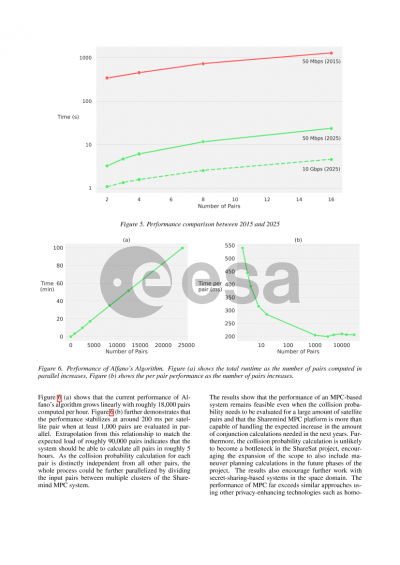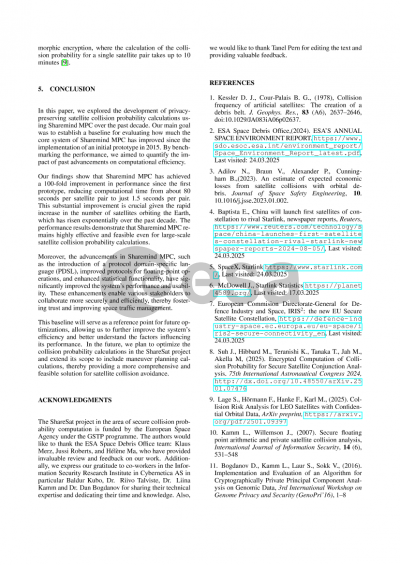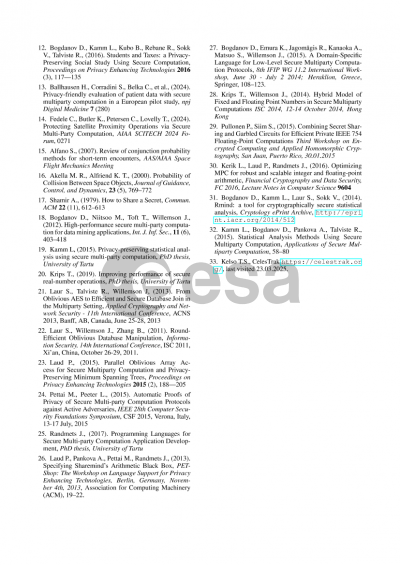Document details

Abstract
The density of launches and satellites in low Earth orbit (LEO) is rapidly increasing. The complexity of managing space traffic is further compounded by the increasing number of different stakeholders, including governmental bodies, private companies, and international organizations. Each entity has its own trajectory propagation and collision avoidance systems, leading to fragmented data and potential conflicts in conjunction predictions. Also, not all the parties are willing to share all their data publicly and transparently. To address this, an approach to space situational awareness (SSA) that integrates data from diverse sources while safeguarding the confidentiality of sensitive information is paramount. This necessitates using advanced, privacy-preserving technologies to accurately assess and mitigate these risks. The ShareSat project, funded by the European Space Agency (ESA), is developing such a solution using a secure computing technique called secure Multi-Party Computation (MPC) for collision avoidance calculations. This project builds upon the initial MPC implementation for satellite conjunction analysis published in 2015, developed by Cybernetica AS using secure data analytics system Sharemind MPC. ShareSat project is enhancing both accuracy and speed while introducing new functionalities to the previous adaption.
MPC is a cryptographic method that allows multiple parties to jointly compute a function over their private data without revealing the data itself. It enables secure data collaboration by distributing computations across multiple parties, ensuring that no single entity can access the full dataset. This makes MPC particularly well-suited for space collision avoidance, where maintaining data privacy is crucial. Unlike fully homomorphic encryption (FHE) or differential privacy, which either require trusted parties or introduce noise to data, MPC offers a unique balance between security and computational efficiency. Cybernetica's Sharemind MPC technology not only preserves the confidentiality of sensitive data but also ensures the accuracy of the computations performed. Only the final aggregated results are decrypted and revealed, without ever exposing individual data points.
This approach enables multiple parties to collaboratively compute functions over their data and ensures that different space agencies, commercial satellite operators, and other stakeholders can share and analyse satellite conjuction probabilities in a secure and confidential manner. By distributing the computation across multiple parties and using cryptographic protocols, Sharemind MPC safeguards the confidentiality of sensitive information, thereby enhancing the accuracy of conjunction analysis and fostering trust among stakeholders.
In conclusion, the ShareSat project represents a significant advancement in space traffic management by refining the state-of-the-art in satellite conjunction analysis. This involves the testing and validation of various collision algorithms within the MPC framework, along with the enhancement of the 2015 prototype to improve both its functionality and computational efficiency. The goal of this talk is to evaluate the performance of the algorithm implemented in 2015 using today’s hardware and newer version of Sharemind MPC compared to the previous implementation.
Preview
